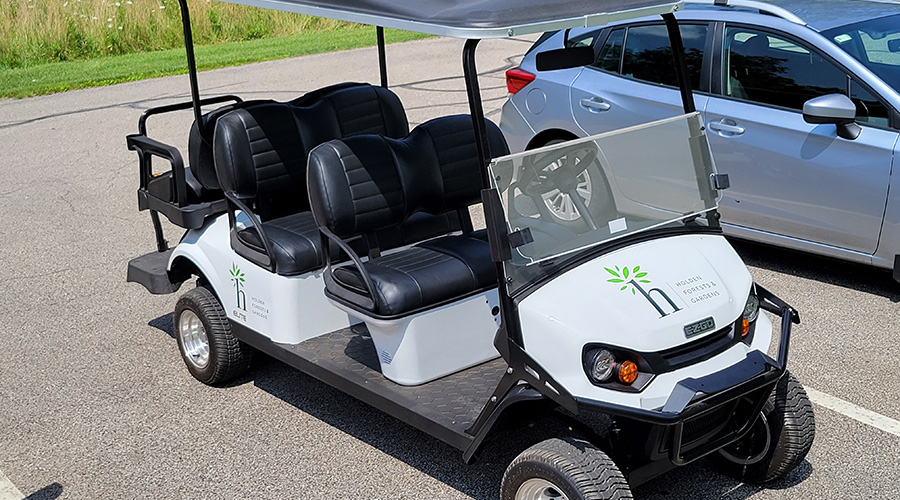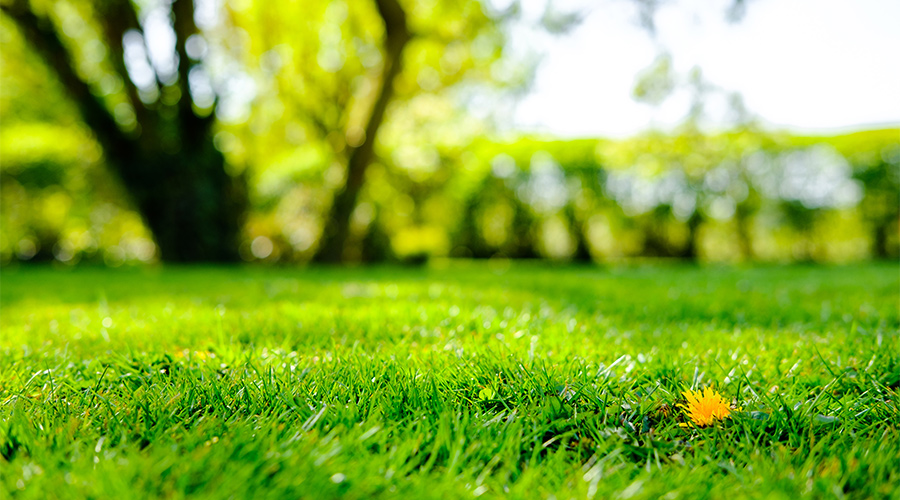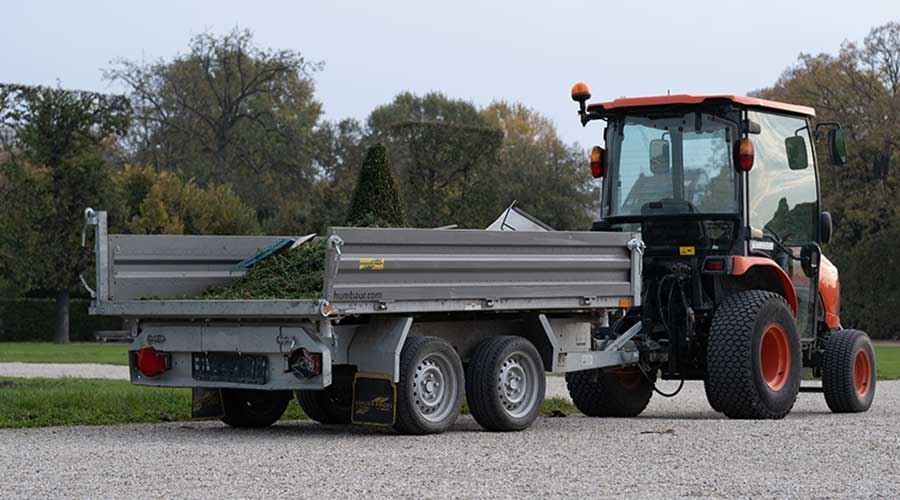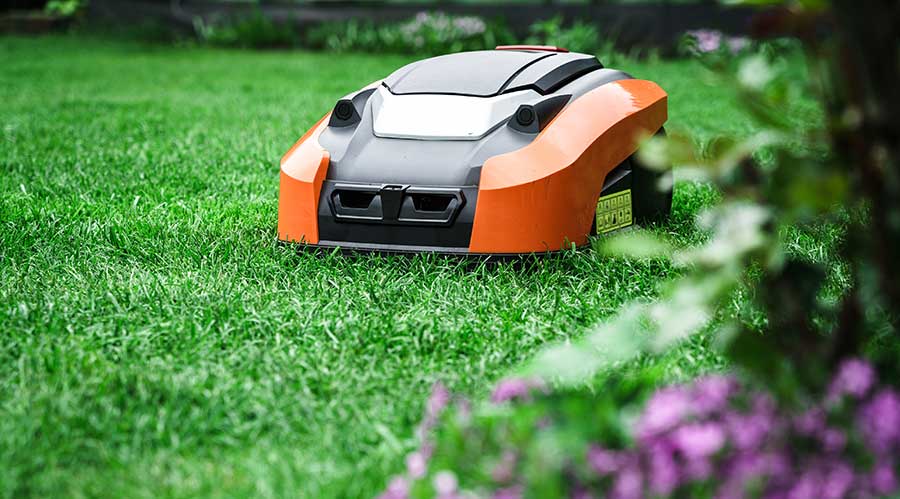Water Conservation Focus of Grounds Department's Efforts
Given the central role water plays in most grounds care operations, the process of moving toward sustainability had to include measures that would minimize water use. The process enabled Emerson and her department to recast themselves as responsible stewards of the campus when it comes to water conservation.
"There is a perception when it comes to water conservation," she says. "When people think about wasting water, the very first thing they think is landscapes. If we have a nice green campus, obviously, the perception is that we're using a lot of water. So we actually had to prove that, no, in fact we're now using less than 10 percent of the campus's water total." To reach that amount, the department installed a weather station and a computerized irrigation system.
"Throughout our campus, we have sensors that read the soil moisture," Emerson says. "Our weather station takes all the climatic information and puts it into a database, and based on the water requirements of different plants, we're able to adjust (irrigation levels) through a computer. The control system applies the least amount of water necessary for the current climactic conditions, including air temperature, relative humidity, wind speed and solar radiation."
The campus's reduction in water use came at an opportune time, given the growing need statewide to curtail water use.
"Because of sustainability and being in Southern California, we needed to worry about water resources," she says, adding that last year, Pasadena implemented water-use restrictions. "So we were already ahead. It didn't impact us as much as other institutions that were not ready for it."
Rethinking Equipment
The department's efforts to operate more sustainably also prompted changes in the equipment workers use.
"The department is making the transition from using rotary mowers to using more reel mowers," Emerson says. "The reel mowers enable the Bermuda grass to fill in and become tighter, which reduces weed without having to apply chemicals."
The changes also have affected smaller pieces of equipment.
"Our hedgers had been gas, but now thy use electricity," she says. "Our new blowers also produce fewer decibels, which helps the department to comply with new municipal ordinances regarding noise." The department also uses electric trucks and carts. The department's efforts have affected the campus, as well as on the department's workers, who put into practice the sustainability principles the department and institute have laid out.
Says Emerson, "Understanding the process and function of a sustainable landscape allows grounds staff to make sustainable choices that are economical and functional."
When Life Hands You Olives, ...
A campaign to make the campus of the California Institute of Technology more sustainable affected some predictable areas of operations for the institute's buildings and grounds department — turf care, plant selection, and water use. But it also affected an unlikely element of the campus — its 100 olive trees. The change has produced some unexpected benefits for students.
Department workers used to spray the trees to suppress olive production, says Delmy Emerson, the institute's director of buildings and grounds. The goals in suppressing production were practical — to eliminate the pavement stains the olives cause and to minimize the slip-and-fall hazards they create.
To become more sustainable, the department put an end to the spraying. As a result, the trees now produce olives, but the institute has made them the focal point of an on-campus harvest festival each fall. Participants pick and collect the olives, then have them pressed and turned into olive oil. The institute sells the bottled olive oil in the campus bookstore and uses the proceeds to fund scholarships.
— Dan Hounsell |
Related Topics:












